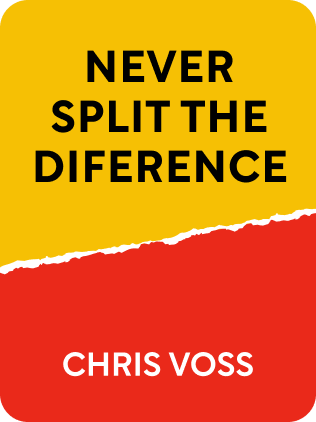

This article is an excerpt from the Shortform book guide to "Never Split the Difference" by Chris Voss and Tahl Raz. Shortform has the world's best summaries and analyses of books you should be reading.
Like this article? Sign up for a free trial here .
What is active listening in negotiation and why is it so important? What can do you do to improve your active listening skills?
Active listening in negotiation is critical for you to be successful. It can help you disarm your counterpart and show them that you really care about what they have to say.
Read more about active listening, negotiation, and how to make your counterpart feel heard.
Active Listening & Negotiation
Active listening is a set of tools that skilled negotiators use to disarm their counterparts. It means making clear that you’re listening and understanding the other person.
Too often, we are only passively listening. We might be literally hearing the words they’re saying, but we’re filtering out information that doesn’t conform with our biases.
Or, we’re so overwhelmed by the sheer volume of information that our brains are shutting down as a defense mechanism: like a computer that’s reached the limits of its processing power. When we’re passively listening, we’re missing important information, only focusing on hearing the things that lead us to our foregone conclusions.
So, how do you use active listening in a negotiation?
Take It Slow
Talk slowly and calmly to show that you’re actively listening and concerned about how they feel.
In contrast, think about how it feels when someone (like a salesperson) bombards you with lots of information all at once. You feel overwhelmed, not in control, and like they’re trying to pull one over on you. It’s as if the other person cares more about what they’re saying than about listening to your concerns.
Apply these experiences to your negotiations with others. When you speak too fast or ambush someone with your argument all at once, they’re going to feel unheard and unfairly pressured. They might get defensive or even break off negotiations because they feel you’re not giving them the time to make the right decision.
Choose Your Tone
We’ve all heard the saying, “It’s not what you say, it’s how you say it.” And it’s true: tone matters far more than word choice. Using different tones of voice can have a remarkable effect: it’s like flipping an emotional switch that gets people cooperative and relaxed.
There are three main negotiating voices to use:
- Late-Night FM DJ: This is a calm, slow, reassuring voice, with a downward inflection. This is the one favored by hostage negotiators, because it keeps hostage-takers from becoming rattled and engaging in impulsive (and thus, dangerous) behavior.
- Positive Playful: This is a light and encouraging voice. This should be your default tone because it’s effective at putting people at ease (which is precisely where you want them when you’re negotiating). Think of it as the vocal equivalent of a pleasant and natural smile.
- Assertive: This is a dominant and authoritative voice. Many people think that this is the key to negotiation, but they’re wrong. Browbeating the other party is rarely successful. This tone should only be used in very select cases, because it has a high likelihood of backfiring.

———End of Preview———
Like what you just read? Read the rest of the world's best book summary and analysis of Chris Voss and Tahl Raz's "Never Split the Difference" at Shortform .
Here's what you'll find in our full Never Split the Difference summary :
- Lessons learned from years as an FBI hostage negotiator
- Why negotiation is about emotional appeals, not rational ones
- The 5 methods for tactical empathy, which gets you what you want by focusing on the other person's feelings






